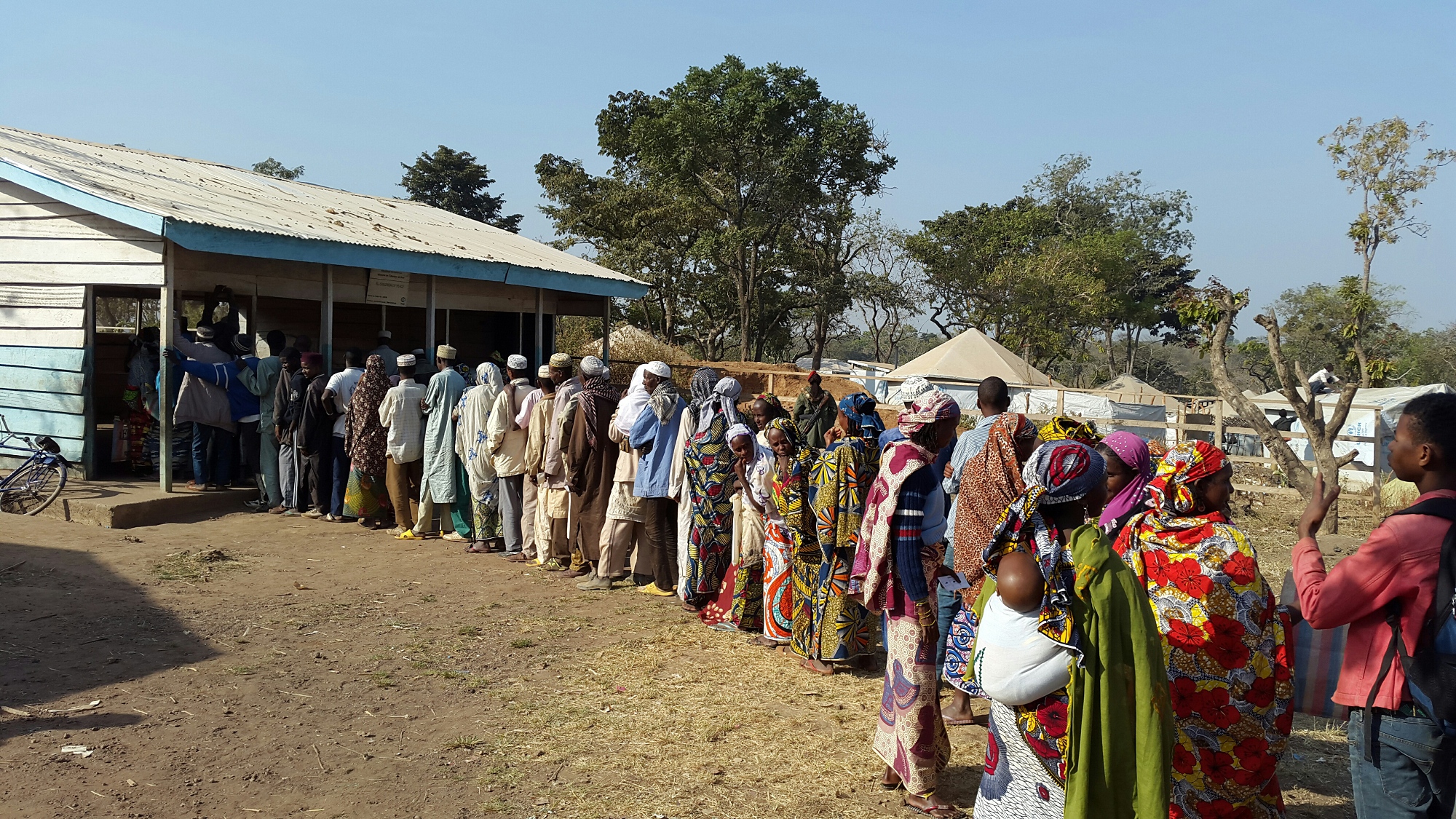Fresh violence displaces almost 50,000 people in Central African Republic
Fresh violence displaces almost 50,000 people in Central African Republic

BANGUI, Central African Republic, February 24 (UNHCR) - The UN refugee agency on Tuesday reported that an upsurge in violence in the Central African Republic has forced the displacement of almost 50,000 people since the start of the year.
This includes an estimated 30,000 who have fled their homes and found refuge in other parts of the country and more than 19,200 people who have crossed into the neighbouring Democratic Republic of the Congo's Equateur province.
UNHCR spokesperson Karin de Gruijl, at a press briefing in Geneva, said those displaced within Central African Republic since January had mostly moved to the northern town of Batangafo and to Bambari in the east-central part of the country. Many were escaping violence associated with seasonal movements of livestock and clashes between herders and the local and agricultural populations with the predominantly Christian anti-Balaka militia.
Exacerbating this, some herders have turned to the mainly Muslim Seleka rebel group for protection. In addition, recent military operations forcing ex-Seleka forces out of public buildings in Bria, a town east of Bambari, prompted reprisal attacks on nearby villages. Civilians were caught in the middle and saw their villages, houses and belongings burnt down. People who arrived in Bambari were destitute and distraught. The majority are women and children and some had been hiding in the bush for weeks.
De Gruijl said that UNHCR had distributed relief items to more than 1,170 recently displaced families in Bambari, while 800 families in Batangafo had received emergency kits. "But while the security situation remains precarious, the humanitarian needs are still enormous," De Gruijl said, adding: "Armed elements enter some of the sites for displaced people in Bambari and Batangafo, threatening people and extorting money."
Some of the displaced live just metres away from their former homes, yet they cannot go back for fear of losing their lives. While most of the local authorities are absent, many public buildings in Bambari are controlled by ex-Seleka forces. "A more robust police and gendarmerie presence is urgently needed to protect civilians and to prevent further killings and acts of retaliation," UNHCR's de Gruijl stressed.
She added that across the border, in the Democratic Republic of the Congo, UNHCR had registered more than 19,200 refugees who had arrived in Bosobolo territory in the north of Equateur as a result of new violence since December in Central African Republic's Kouango district, in Ouaka prefecture.
"Our teams on the ground report the ongoing arrival of refugees who tell us that they fled clashes between the anti-Balaka and ex-Seleka militias in their villages. They say that their houses are being burned and they have no other choice than to flee. If they stay in their villages, they risk being tortured or killed and women are being raped," de Gruijl said.
New arrivals have also been reported in the territory of Mobayi. Some 2,400 refugees have crossed into the Democratic Republic of the Congo, using new entry points in the territories of Mobayi and Bosobolo since February 15. Most are children. They said that they had fled out of fear of violence by ex-Seleka fighters after a disarmament operation in Bria.
UNHCR and its partners are on the ground to set up a new refugee site in the area of Bili, away from the border. Newly arrived refugees currently live in spontaneous settlements on the bank of the Oubangui River, the natural border between the Democratic Republic of the Congo and Central African Republic, with limited access to health care, clean water and food. Children have no access to education.
De Gruijl said UNHCR was organizing emergency assistance, including mobile clinics, and access to potable water while preparing their transfer to the refugee site. The lack of services and logistical challenges in this remote part of northern Democratic Republic of the Congo are making this work even more difficult. The hospital in Bili has only 15 beds and lacks equipment
"Our teams have received alarming reports of sexual violence by armed elements from CAR [Central African Republic]," de Gruijl said, citing the case of three refugee girls kidnapped and raped by armed men. "We fear that there are many more cases that remain unreported. Therefore, relocation of the refugees away from the border is crucial and we call on all partners and the Congolese authorities to deploy all necessary efforts to allow this transfer to take place urgently," she added.
Almost 900,000 people have been forcibly displaced by violence in the Central African Republic. Some 442,000 are displaced inside the country, including more than 50,000 in Bangui, some 35,000 people who fled to Bambari and 33,700 in Batangafo. Some 451,000 are living in exile, mainly in Cameroon, Chad, the Democratic Republic of the Congo and the Republic of the Congo (24,000)








